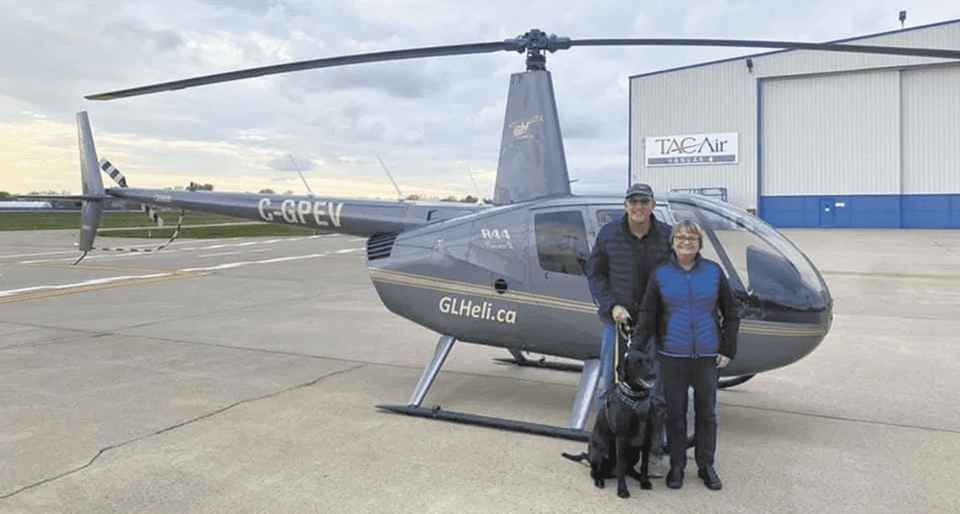Sky's the limit for those who can afford it; Whirlybirds whisk snowbirds to rendezvous with their wheels in new Buffalo shuffle
While the COVID-19 pandemic has altered the plans of many Canadians who look forward to winters in the sun south of the border, one enterprising company has come up with a plan for motivated and well-heeled Snowbirds, plus their vehicles, to make the first leg of their annual treks to the Sunshine State, the Grand Canyon State, or Myrtle Beach.
Great Lakes Helicopters (GLH) usually operates out of Kitchener/Waterloo, but for the past month has been doing a brisk business out of the Hamilton International Airport, flying Snowbirds across the border to the Buffalo International Airport. While the border is closed to non-essential travel by road—winter vacations may be desirable, but they are hardly essential—Canadians can still legally fly into the United States the same as before the pandemic hit, for essential or non-essential reason.
GLH Operations Manager Dwayne Henderson told the Voice that they expect to be flying out of the Niagara District Airport very soon, ferrying passengers from Niagara Falls east to the Queen City.
“We’ll still have to clear Customs in Hamilton, so the helicopter actually has to go from Buffalo back to Hamilton, and then fly to Niagara District Airport to pick the people up and head [back] over to Buffalo,” he said.
Thursdays through Mondays, GLH offers five flights a day, every two hours, starting at 7 AM. Most days, flight slots are full, at $1200 a pop. Several hundred bookings have been made, said Henderson. A number of vehicle transport companies have partnered with GLH in this venture, charging $700 to transport a vehicle ($1200 for trailers and RVs) from Canada over to meet the helicopter at the airport in Buffalo.
I suspect that there’s a high probability that Biden's administration will get in line with Trudeau to limit border crossings
Henderson said his business model includes flights up to January 22, just after US president-elect Joe Biden takes over in the White House.
“I suspect that there’s a high probability that Biden's administration will get in line with Trudeau to limit border crossings,” said Henderson. “But if there is still a market, we’ll keep going.”
GLH has up to four helicopters dedicated to the cross-border venture. Some of the smaller craft are piston-engine powered, while the bigger helicopters are turbine models. Flights usually include three passengers and one pilot. There is a weight limit of 530 pounds for passengers, pets, and luggage. Each helicopter is sanitized prior to and after every flight, and masks are mandatory for both pilots and patrons.
While business charters are the main cash-flow for GLH, the company is also a Transport Canada-approved Ontario private career college/flight training school. Their fleet of three Robinson R22s, three Robinson R44s, and one Bell 206 Jet Ranger helicopter allows the company to perform a variety of operations.
Some may question the ethics of flying people over a “closed” border during a pandemic, but Henderson said that major airline carriers have been transporting people into the US throughout the crisis. Snowbirds are still required to clear Customs, and the entire procedure falls fully within COVID-19 rules and requirements. Canadians driving back home across the international border will need to follow quarantine protocols currently in place.
Current border travel restrictions are in place until at least Dec. 21.
Global Affairs Canada continues to advise against all non-essential travel outside Canada, and warns that should complications arise during travel outside the country, the Canadian government may be limited in its resources to help.
The travel site SnowbirdAdvisor.ca surveyed 3000 of its members, and reported that over 30 percent of respondents still planned to go away for some or all of the winter season.



